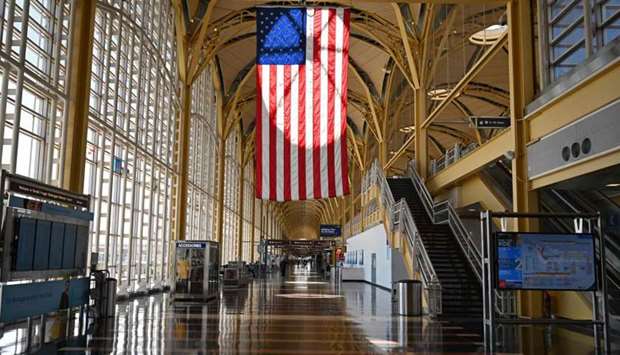Mounting economic pressures and health concerns coupled with social isolation during the Covid-19 public health emergency have led to a rise in individuals seeking mental health care and self-medicating with drugs.
This has sparked a cry for more funding for behavioural health care from experts and advocacy groups.
As of Saturday, the US had about 504,000 reported cases of coronavirus, leaving many people anxious about their physical, mental and economic health.
A record 16.8 mn Americans have applied for unemployment during the Covid-19 pandemic, and many more are stressed by the possibility of job loss or underemployment.
Calls to the Substance Abuse and Mental Health Services Administration's disaster distress hotline increased 891% from March 2019 to March 2020, according to a spokesperson.
And a survey released last week by the nonpartisan Kaiser Family Foundation found that 45% of individuals say stress related to Covid-19 is affecting their mental health.
Experts worry the current mental health infrastructure is not enough to support the uptick in services necessary during the health crisis, and that the combination of stressors could have crippling effects.
"We're really at a tipping point now," said American Society of Addiction Medicine President Paul Earley."We think it's time to act very aggressively about the addiction crisis so that it doesn't push a group of people who are already in a dangerous place into a very deep and dark hole."
The White House hosted a call with 400 mental health leaders and advocates Thursday afternoon to discuss the effects of Covid-19 on mental health.
The call included President Donald Trump, Vice President Mike Pence,
White House Office of National Drug Control Policy Director Jim Carroll, Health and Human Services Secretary Alex Azar, Veterans Affairs Secretary Robert Wilkie and Assistant Secretary for Mental Health and Substance Abuse Elinore McCance-Katz.
Earley and National Council for Behavioral Health President and CEO Chuck Ingoglia were among those on the call.
Both groups also asked Congress this week for $38.5bn in supplemental appropriations to serve the growing need for mental health and addiction services.
The funding would be used to cover lost revenue, increased costs for overtime, personal protective equipment and telehealth services.
"This pandemic has spread fear and anxiety across our nation, leaving no one unaffected. Our mental health disorder and addiction treatment providers are facing an influx of need within the community not only to treat the underlying serious mental illness or addiction, but also to screen those that arrive for treatment for Covid-19," reads the joint letter to congressional leadership sent this week.
Experts worry that more people will require mental health care treatment because they are anxious about catching the disease and because they are not able to socialise with others.
"Covid-19 is the catalyst to an influx of new behavioural health patients that will flood the system and require care. Isolation, physical distancing, mortality and economic hardship are taking their toll on people," said Ingoglia.
He said the surge on the medical system will likely be mirrored in the mental-health system, with more individuals experiencing anxiety and depression, as well as increases in post-traumatic stress disorder for those on the front lines.
"Ultimately, this surge will have a long tail that we need to prepare for now," Ingoglia said.

